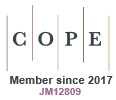The index of relative importance: an alternative approach to reducing bias in descriptive studies of animal diets
R. K. Hart,
M. C. Calver and C. R. Dickman
Wildlife Research
29(5) 415 - 421
Published: 30 December 2002
Abstract
The Index of Relative Importance (IRI) is a composite measure that reduces bias in descriptions of animal dietary data. The two papers introducing the IRI in 1971 had been cited a total of 214 times by the end of 2001 and proposed as a standard methodology. However, 180 of these citations concerned the description of the diets of fish, indicating that the IRI is not well known outside fisheries biology. This illustrates how the interests of researchers in a narrow range of taxa may restrict the application of a useful technique to particular groups of animals. Here we apply the IRI to dietary data from one mammal species, two bird species and two species of geckoes to illustrate its applicability to a wide range of taxa. We believe the approach should be considered seriously by terrestrial ecologists concerned about the biases inherent in single-index approaches to describing animal diets.https://doi.org/10.1071/WR02009
© CSIRO 2002


